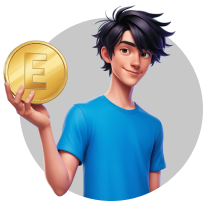Закончите вопросы:
- You could understand me, ...?
- They must do the work,...?
- You will write to me, ...?
- He gives a lesson every day, ...?
- You read modern writers, ...?
- They gave her a clock, ...?
- You went to the theatre, ...?
- I wrote to you, ...?
- He speaks English, ...?
- She has done her homework, ...?
- Hob must work harder, ...?
- My friend plays football, ...?
- Bob sang a song, ...?
- She doesn't like coffee, ...?
- He enjoys reading, ...?
- You can play the guitar, ...?
- They travelled a lot last summer, ...?
- Those women are doctors, ...?
- We can have a party on Sundays, ...?
- The children are not at home, ...?
- Mrs Adams speaks German, ...?
- Tom spent his holidays in France, ...?
Английский язык 4 класс Вопросительные предложения (Tag Questions) вопросы на английском завершение вопросов английский язык 4 класс
Давайте закончим вопросы. Для этого мы будем использовать вопросительные теги, которые обычно добавляются в конце утвердительных предложений. Это позволяет нам превратить утверждение в вопрос. Вот как это делается:
- You could understand me, ...? - could you?
- They must do the work,...? - mustn't they?
- You will write to me, ...? - won't you?
- He gives a lesson every day, ...? - doesn't he?
- You read modern writers, ...? - don't you?
- They gave her a clock, ...? - didn't they?
- You went to the theatre, ...? - didn't you?
- I wrote to you, ...? - didn't I?
- He speaks English, ...? - doesn't he?
- She has done her homework, ...? - hasn't she?
- Hob must work harder, ...? - mustn't he?
- My friend plays football, ...? - doesn't he?
- Bob sang a song, ...? - didn't he?
- She doesn't like coffee, ...? - does she?
- He enjoys reading, ...? - doesn't he?
- You can play the guitar, ...? - can't you?
- They travelled a lot last summer, ...? - didn't they?
- Those women are doctors, ...? - aren't they?
- We can have a party on Sundays, ...? - can't we?
- The children are not at home, ...? - are they?
- Mrs Adams speaks German, ...? - doesn't she?
- Tom spent his holidays in France, ...? - didn't he?
Теперь вы видите, как каждый вопрос был завершен. Мы использовали вопросительные формы, которые соответствуют утверждениям. Это важный навык в английском языке, который помогает нам вести диалог и уточнять информацию.


